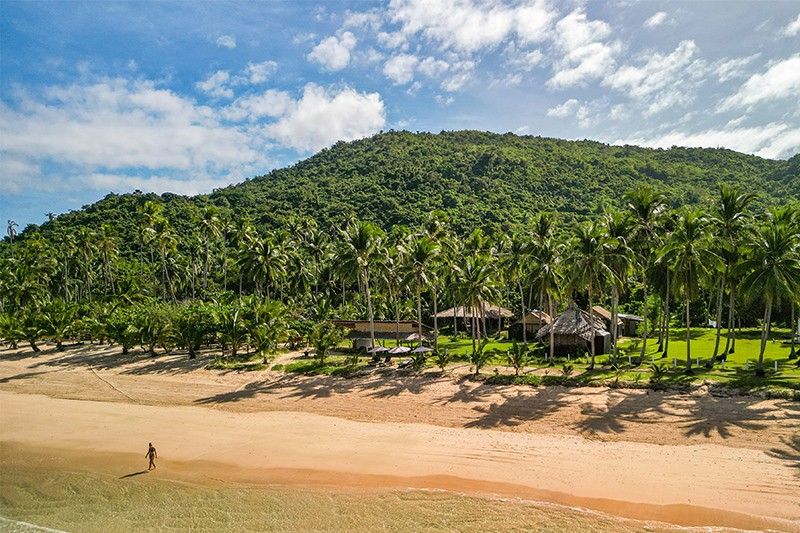Airbnb bookings give P45.7 million boost to Philippine GDP, employment in 2022 — report

MANILA, Philippines — A report released early this month found that activities of Airbnb, an online platform for short- and long-term homestays and experience, gave a big boost to the Philippine economy in 2022.
The research by independent United Kingdom-based think tank Oxford Economics, commissioned by Airbnb learned that activities booked through the platform contributed P45.7 million (US $480 million) to the Gross Domestic Product of the Philippines in 2022.
It also spurred the employment in the Philippines as it reported that one in 77 jobs in the tourism sector in the country are associated with the platform. The Airbnb activities are also estimated to support around 103,800 jobs in the country.
The research attributed the platform’s contribution to the Philippine economy to Airbnb guests who spent a total of P47.7 million (US $876 million) in the country. They made purchases in various business establishments such as in restaurants, retail stores and on transportation.
For the domestic tourism alone, Oxford Economics said that Airbnb guests spent P24.2 million (US $445 million) in the Philippines last year.
Tourism trends
The same research learned that there was a change in travel behavior of tourists since COVID-1o with some now opting to visit tourist destinations away from urban areas and some booking long-term stays driven by the emergence of flexible work arrangements.
In late June, the Department of Tourism rebranded the Philippines’ tourism campaign to “Love the Philippines,” taking into consideration the “changed traveler’s” behavior.
Based on its local, regional and global research, the DOT said that the COVID-19 pandemic changed the travelers’ motivations, preferences and behavior.
In a presentation during the launch of the rebranded tourism campaign, Marie Adriano, marketing firm DDB Group Philippines’ brand and strategic planner, cited that there was a change in the preference of travelers who are now going beyond leisure.
During the COVID-19 pandemic, many tourists also considered “workation” or working while on vacation, with many traveling as a form of respite from the COVID-19 lockdowns.
An online travel survey titled “The Evolving Landscape of Domestic Travel in the Philippines: A study of travelers and tourism enterprises amidst the pandemic,” released by the DOT in February 2021, determined that most of the respondents see travel as a way to keep their sanity.
Amid these changes, James Lambert, director for Economic Consulting in Asia for Oxford Economics said that Airbnb has been at the heart of some trends that reshaped the country's tourism industry.
“Including the shift in travel away from cities and towards more rural communities, and the increase in demand for long-stay trips, exemplified by the live and work anywhere phenomenon," he said.
Amanpreet Singh Bajaj, Airbnb’s General Manager for Southeast Asia, India, Hong Kong and Taiwan also said that "the economic contribution to both GDP and jobs driven by travel on Airbnb in the Philippines has created powerful economic ripple effects that have enabled the growth of local businesses, such as shops, restaurants, bars, and cafes — which are often central to how travellers experience a destination — and created job opportunities for the locals.”
“The growth of the long-term stays segment since 2020 — enabled by flexible work policies and supported by Airbnb’s Live and Work Anywhere program — is helping destinations attract guests who stay longer and spend more per trip. Travel is now more dispersed, and so the economic benefits are being shared across more destinations, enabling a valuable economic contribution to rural and regional areas. This dispersal is being driven by Hosts on Airbnb and in turn creating economic opportunities for various communities," Bajaj said.
The Airbnb exec said that their company is committed to collaborating with government and communities to rebuild tourism economies.
President Ferdinand Marcos Jr. earlier said he counts on journalism to be one of the economic pillars of the country.
Meanwhile, the Airbnb report released last October 3, presented results covering the twelve month period up to and including March 2023, referred to as 2022. It said that this represents the first full year after the Philippines opened its borders to international travelers.
The report also used propriety data from Oxford Economics applying the prevailing exchange rates at the time of study.
- Latest
- Trending



























